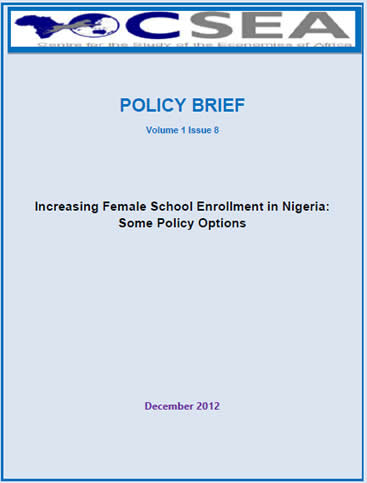Publication Date:December, 2012
Volume Number:1 Issue 8
Document Size:4 pages
The last two decades have witnessed an outpouring of policies aimed at increasing schoolenrollment in Nigeria, yet problems still persist. Evidence on what works and what does notcan help government design and implement programs that may help solve these remainingproblems. In line with promoting evidence based policymaking, this policy brief presents asummary of simulation study of two (2) policy alternatives, which the federal governmentcan adopt in order to increase enrollment of girls in the primary schools, and by extensioneliminate gender disparity.
The results reveal that providing free primary education for all pupils with stipends for girlssaves government more money relative to its effectiveness than providing free primaryeducation for all pupils with transportation for girls. Therefore, for the Nigerian governmentto increase female school enrollment, reduce illiteracy rate and achieve the MDG Goal 3 ofgender equality, the existing policy of free primary education should be complemented withfree transportation for girls in the high pedestrian traffic urban areas and with free stipendsin the low income rural areas.

